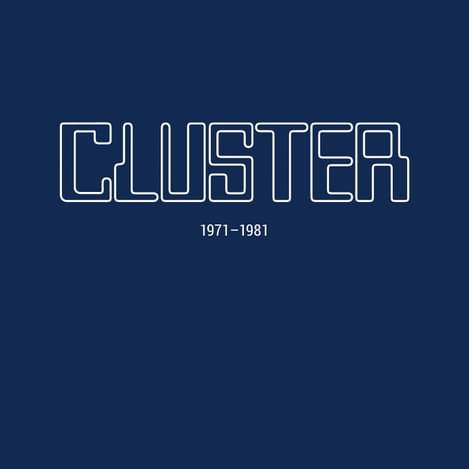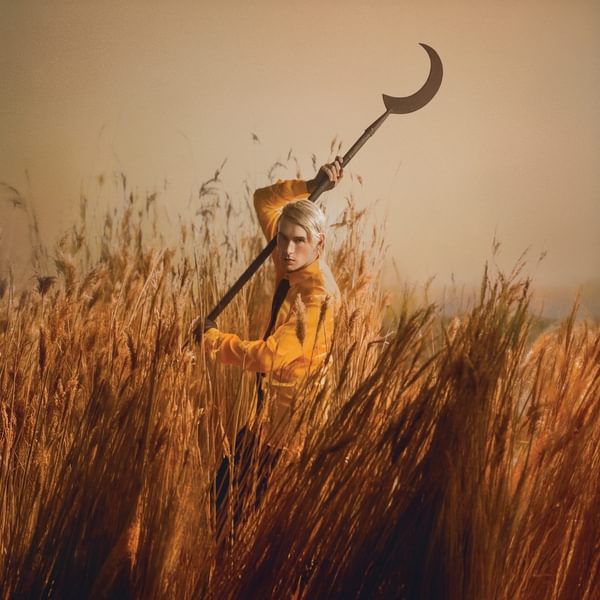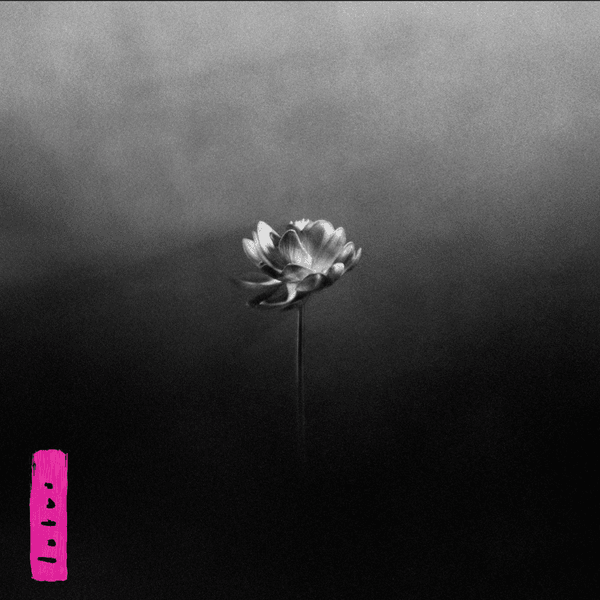Cluster and the sound of the future, 45 years ago
"1971 - 1981"

You can dance to Neu!, and Can even had a surprising cross-over hit with their de-funked version of disco on 1976’s “I Want More”, but Cluster’s back catalogue is filled with much more intrigue. Formed in 1969 and initially a trio comprising of Hans-Joachim Roedelius and Dieter Moebius - alongside the visionary Conny Plank, who took a producer role after their ’71 debut - Cluster explored the possibility of man-controlled electronic music years before Hütter and Schneider's Kraftwerk, who were still a prog act at the time. This could be in the form of the replication of cold machinery or a re-imagination of Miles Davis if he had access to electronics, but whatever form it took it was the sound of the future, forty five years ago.
This austere box set, a box - comprising of nine CDs in coloured sleeves with no imagery and two booklets outlining the back story of each album - is, of course, a heavy listen, but acts as an absolutely essential document of European electronic music. Their first two albums, 1971’s self-titled and II a year later - are quite rightly held up as deeply influential pieces of avant garde electronica, but some of their later, less heralded material is just as important.
1974’s Zuckerzeit is produced by Neu!’s Michael Rother and acts as an additional album of Cluster and Rother collaborations which they recorded as Harmonia. Although this sound is undeniably that of Cluster, fans of Harmonia’s albums - 75’s Deluxe and particularly their ’74 debut, Musik Von Harmonia - will find themselves gravitating towards it. Rother’s metronomic approach and disciplined attitude towards musical structure makes this one of their finest albums, the warm electronics and desolate atmospherics blatantly influencing artists from Bowie, Spiritualized, Boards Of Canada, Aphex Twin and right back to Brian Eno.
Eno, who worked alongside Harmonia in ’76 on Tracks And Traces (an album that lay in the vaults for twenty years prior to release), had a covert influence on Cluster’s ’76 album Sowiesoso, the most melodic and pretty sounding album within their back catalogue. This naturally led to a duo of full collaborative albums; Cluster & Eno in ’77 and After The Heat a year later. Bear in mind that Eno was right in the middle of his work with Bowie as part of the ‘Berlin trilogy’, the instrumental tracks on Heroes and in particular Low, and with hindsight, the influence of Cluster on those albums is screaming out to the listener here.
The story doesn’t end with these albums. They released another four up to their split in 2009, but 1971-1981 shows an act operating at their pinnacle. Moebius continued as a solo artist up to his death in 2015, whilst Roedelius continues to record as Qluster, and released another album just last month. While it’s pretty impossible to sit through more than a couple of hours of this box in one go, the importance of this body of work is undeniable. Music simply hasn’t caught up - this still sounds futuristic, enigmatic, distant and complicated.
Get the Best Fit take on the week in music direct to your inbox every Friday

Patrick Wolf
Crying The Neck







